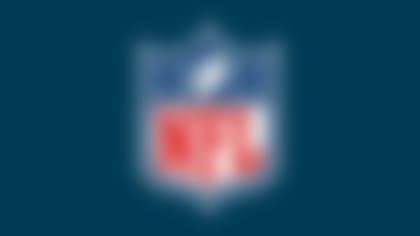ENGLEWOOD, Colo. -- John Fox would love for history to repeat itself.
The Broncos' new coach sees parallels in Denver to his previous job in Carolina, where he took the Panthers to the Super Bowl in 2004, two years after his arrival in Charlotte and his selection of Julius Peppers with the second overall draft pick.
The Broncos own the second overall pick in Thursday night's draft after a franchise-worst 4-12 season and personnel mistakes that cost Josh McDaniels his job as coach and de facto general manager.
The Broncos brought back Super Bowl hero John Elway as their chief of football operations, and he hired Fox as his coach and empowered general manager Brian Xanders in a front-office overhaul.
"I'm real excited. It seems like the stars have aligned," Fox said recently. "In Carolina when I first went in 2002, they were 1-15. ... That team was in disarray. We had the second pick in the draft, much like we do here in Denver."
He selected Peppers from North Carolina and the Panthers were on their way to respectability.
"That's our goal, to repeat and (get) a player like him in this draft," Fox said. "I think we're set up very well to have some success."
As it was in Carolina nearly a decade ago, defense is Denver's top priority and the Broncos would love to land Marcell Dareus of Alabama to put between pass-rushers Elvis Dumervil and Robert Ayers and help turn around the NFL's 31st-ranked run defense.
Dareus, who packs 306 pounds on his 6-foot-4 frame, is "a massive DT that's versatile across the line of scrimmage" and the strongest of all candidates at his position, Xanders said.
The Broncos also took close looks at Texas A&M pass-rushing outside linebacker Von Miller and LSU cornerback Patrick Peterson, whom many consider the most talented prospect in the draft.
Of course, the Broncos are willing to listen to anybody who wants to trade for the second pick so they could stockpile selections and save some money.
There's no telling if there will be a rookie salary scale implemented in any new collective bargaining agreement. Without one, that second pick will be in line for a $70 million contract. Last year's No. 2 pick, Detroit Lions defensive stud Ndamukong Suh, signed a five-year deal worth $40 million guaranteed and as much as $68 million overall.
A rookie wage scale could put the Broncos on the hook for maybe $20 million or so over four years.
"It's obviously very beneficial for us with a wage scale," Elway said. "And not only the Broncos but the (teams with) top-10 picks if the wage scale's in place."
The lack of certainty on a rookie wage scale as owners and players dig in over their labor impasse might make teams reluctant to move up.
"If the positions were reversed, I think there's no question that we would be thinking about what that pick would cost," Elway said. "Then again, we may be getting a heck of a player at a heck of a price with whatever the wage scale would come back at if there is one."
The Broncos' dismal defense has been the team's Achilles' heel since the days of Mike Shanahan and is the primary culprit in Denver's five-year playoff drought. McDaniels didn't use any of his 19 draft picks on defensive linemen except for Ayers, who was switched from end to outside linebacker.
The Broncos own four of the top 67 picks as they try to plug their many leaks on defense and augment an offense that was deep only at receiver until Eddie Royal and Demaryius Thomas had offseason surgeries.
"The biggest thing is to get four starters," said Xanders, who has taken on a greater role in the draft since McDaniels' departure. Xanders said the team's draft board has 190 players, about twice what it did the past two seasons, in part because the Broncos are ditching the 3-4 defense for the 4-3, which opens up the pool of front seven prospects.
Because of the league's labor impasse, many NFL teams might be doing things differently by drafting players first and then filling in gaps through free agency rather than the other way around.
"I think my feeling on that is it actually helps us with the draft," Elway said. "Because ... it doesn't put the pressure for us to draft a need."
The Broncos were the league's most active team in free agency during McDaniels' short stint in Denver, but Elway is a bigger fan of the draft.
"The bottom line is that we've got to grow through the draft and that's how important the draft is to us," Elway said. "And obviously we can fill in a little bit through free agency, but the core group that we want to get that's going to help us win for a long time, consistently win, is those guys that we're able to pick up through the draft."
In addition to scouring the deep pool of defensive talent, the Broncos did their homework on the many intriguing quarterbacks available, including Cam Newton, even though they insist they like their trio of Kyle Orton, Tim Tebow and Brady Quinn.
"Quarterbacks are just as important as DBs, are just as important as offensive linemen, are just as important as defensive linemen," Elway said. "I'm not saying that we don't have the franchise guy on our team. But we had to go through the process to see what was out there."
Elway, the top pick in the 1983 draft who eventually took the Broncos to five Super Bowls and two championships, demurred when asked if there was a franchise quarterback available in this draft.
"A franchise guy has not stood out to us yet," he said. "But that's not to say there isn't one there."
Copyright 2011 by The Associated Press



